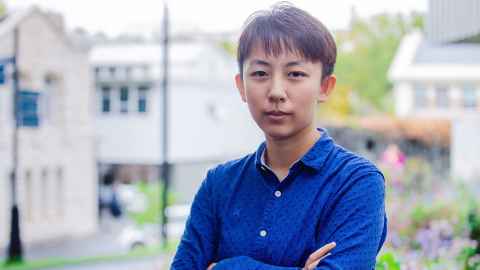Using sustainability to drive strategy
10 June 2021
Sustainability is the most discussed concept within the global higher education sector, but what is it that makes a truly sustainable university?

Dr Jingwen Mu is Strategic Planning Manager at the University of Auckland and a keynote speaker at the virtual QS EduData Summit. She believes the sector need to look wider than the concept of environmental sustainability, using the United Nations Sustainable Development Goals (SDGs) as guidelines to ensure universities remain relevant and integral to the development of society .
“Traditionally we have framed sustainability in terms of our environmental footprint - from what we generate, to whether we classify the waste correctly to the different recycling bins,” she says. “But the SDG framework encourages us to think beyond that and embrace the broader concept of sustainability. This is one that considers all of humanity’s greatest challenges, from poverty, to hunger, to water sanitation, to gender balance, inequalities, sustainable cities, peace, justice, and how we should collaborate with one another to achieve the global common good.”
The University of Auckland has been building SDG thinking into all key activities over recent years, Dr Mu says.
“When we engage with the community and our school partners, we regard this as progress towards SDG17 Partnership for goals. When we were appointed as the SDG4 Quality Education Hub by the United Nations Academic Impact initiative, we think about how we can involve our staff and students to advance learning and teaching experiences such as the development of innovative pedagogical practices and equity initiatives. And when we look at our research publications, it’s not
just about citations and metrics. We have been developing a mapping process to understand who our key researchers are in different SDG areas.”
Dr Mu says that the University’s approach to sustainability has three layers, driven by the strategic commitment articulated in Taumata Teitei, the new Vision 2030 and Strategic Plan 2025.
“Taumata is a Māori term associated with a summit, with Teitei as the height. This signals the lofty peak, or the desire of the University to pursue excellence despite the uncertainty we are facing. Sustainable University has been built into the strategy as a key theme. Our vision statement challenges us to be internationally recognised for our unique contribution to fair, ethical, and sustainable societies. This commits us to forward-thinking in developing sustainability strategies and the values and purpose-led approach in sustainability."
We will continue to be world-leading in extending the reach and significance of the Sustainable Development Goals. Earth systems, biodiversity, water, food, land, human economic systems and unplanned urbanisation are under such pressure that we need to find a way towards sustainable prosperity.
The next level, she says, is determining the strategies that will become operationalised in the future, and developing ideas on how this will be accomplished with strategic initiatives and plans.
“As an example, Taumata Teitei highlights the strategic priority to achieve net-zero carbon status. The means through which this can be achieved will be fleshed out in operational plans such as the carbon zero plan, and will be cross-referenced and addressed in other plans and policies such as our sustainability policy, procurement policy, travel policy, and the University’s estate strategy."
The final stage is the development of measures of success for sustainability.
“When we say that we will work towards carbon zero, the data and evidence determine progress. We will bring all the relevant data into one place (such as electricity use, air travel details, and waste and compost) for inclusion in our carbon calculation and modelling, so we can identify the areas where improvements are most needed."
The University of Auckland included sustainability KPIs as part of the annual report Statement of Service Performance in the last strategic plan cycle and more recently has also published an annual SDG report documenting key initiatives, activities, and projects.
In developing case studies and key statistics as part of this reporting, staff are invited to share stories.
“Many staff and students are passionate about being able to contribute to the sustainability initiatives, and to be part of the SDG reporting cycle. For our people who are less conscious of the SDG framework, this reporting commitment provides a good starting point for them to understand the core concepts and what they can do to make a difference,” Dr Mu says.
“A sustainable approach needs to include all members of the University community. It takes stock of positive things that have been accomplished in the past, and considers how to work together to develop a vision for the future."
Dr Mu spoke at the virtual QS EduData Summit. This global event is being held to consider how educators can use data to understand the impacts of new educational policy and work towards international improvement of teaching and learning outcomes to address digital divide and technological inequalities. It is being delivered in partnership with the University of Auckland.
Media enquiries:
Lisa Finucane
Mobile: 021 677 216
Email: l.finucane@auckland.ac.nz